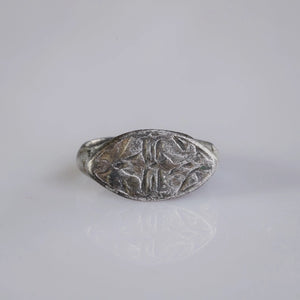Interesting facts
1. The Mythical Founding: Romulus and Remus
According to tradition, Rome was founded in 753 BC by twin brothers, Romulus and Remus. These twins were nurtured by a she-wolf, symbolizing Rome's view of itself as robust and favored by the gods. The story sets the stage for a city destined to grow into a beacon of civilization from its humble beginnings.
The legend reflects core Roman values where vulnerability transforms into strength, emphasizing their resilience and divine favor. This foundation story introduces motifs of rivalry and ambition, pivotal throughout Rome's history.
2. The Strategic Seven Hills
Rome's location on seven hills was crucial to its development. These hills, such as the Capitoline Hill, not only provided defense but also shaped Rome's urban planning, fostering communal life rich in tradition and diversity. Each hill became a neighborhood with unique characteristics adding to the city's complexity.
Geography profoundly influenced the city’s development and innovation, such as the engineering of aqueducts and roads essential for swift communication and resource distribution within the empire.Explore more about the development of Ancient Rome.
3. Architectural Marvel: The Colosseum
The Colosseum stands as a testament to Roman engineering genius. Completed in AD 80, it could seat 50,000 spectators and hosted events that mirrored societal values and distracted public dissent. Despite time's wear, it remains a symbol of Rome’s grandeur.
4. Political Innovations and Expansion
Rome's transformation from monarchy to republic in 509 BC was revolutionary, introducing checks and balances with elected officials. These structures endured intense political struggles, laying groundwork for modern democracy despite social divides.
The Roman Empire’s vast expansion influenced continents with its legal and cultural legacies, shaping languages and governance systems lasting through centuries. Learn more about the Roman Empire's expansive influence.
Explore further insights on our blog.
5. Resounding Legacy of Language and Law

Daily life in Rome was richly textured, marked by bustling forums, elaborate baths, and vibrant festivals. Such cultural life fuels current fascination, maintaining Rome's vibrant legacy.
How might our world be different today had Roman civilization not reached the heights it did?
Perhaps we would see different languages dominating scientific fields or entirely different legal systems shaping our governments.
As we reflect on the immense influence Rome has had on the modern world, it begs the question: How might our world be different today had Roman civilization not reached the heights it did? Perhaps we would see different languages dominating scientific fields or entirely different legal systems shaping our governments.
Conclusion
Rome's history is an intricate tapestry of myths, strategic development, engineering marvels, and political innovations. As the modern world continues to evolve, the echoes of Rome remind us that even the mightiest of empires can leave a lasting legacy that shapes societies for millennia. Find more inspiring stories here.
Own a Piece of History
Shop nowWhat is a significant myth about the founding of Rome?
The founding myth of Rome speaks of twin brothers, Romulus and Remus, nurtured by a she-wolf, which captures Rome's strength and divine favor.
How did Roman geography impact its development?
Rome's geography, especially its location on seven hills, influenced urban planning and defense strategies, contributing to its prosperity.
How can I connect with Roman history today?
Connecting with Roman history is possible through artifacts like those offered at auroraantiqua.store, where each piece tells a unique historical tale.




